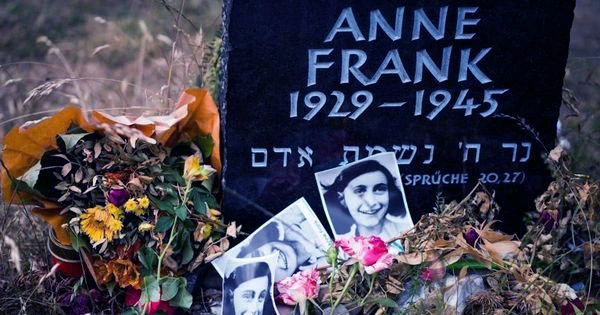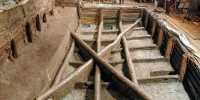After 77 years, a team of investigators believes they have found the person who betrayed Anne Frank’s whereabouts to the Nazis, resulting in her and her family’s deaths. In the German-occupied Netherlands, the Frank family moved into a covert flat hidden underneath her father’s business in 1942. They resided here for two years, during which time Anne penned her renowned journals, which were released after her death.
Nazi authorities arrived at the firm on August 4, 1944, and discovered the family hiding in the secret annex. They were transferred to the concentration camps Auschwitz and, later, Bergen-Belsen, where Anne and her sister died. Her father was the only member of her family who made it out of the camps alive.
Many names have been suggested as possible informants who revealed the Frank family’s address over the years, ranging from stockroom manager Willem van Maaren. whom the Frank family did not trust, to Bep Voskuijl, who aided the family while they hid, but may have inadvertently passed the information on to her sister Nelly, a Nazi collaborator between the ages of 19 and 23.
Other theories, including one proposed by the Anne Frank House museum in Amsterdam in 2016, are that they were discovered by accident or that their whereabouts were discovered when Martin Brouwer and Pieter Daatzelaar, Anne’s father Otto’s business partners, were caught trading in rationing coupons. According to the analysis of Anne Frank’s diary, the two were the family’s source of ration coupons.
Arnold van den Bergh, a high-profile Jewish notary working in Amsterdam, was finally the person who divulged the Franks’ whereabouts, according to the current team of investigators, which includes a former FBI agent and a number of historians. Based on how he was handled by the Nazis — even being classified as non-Jewish — as well as an anonymous note given to Otto Frank after his family’s death, they select van den Bergh as the probable suspect after six years of inquiry and the elimination of 11 other suspects. Van den Bergh was a member of the Jewish Council, which implemented Nazi policy in Jewish regions, according to the researchers, who will publish a book about their discoveries called The Betrayal of Anne Frank: A Cold Case Investigation.
The council disbanded in 1943, and the majority of its members were deported to detention camps. Van den Bergh, on the other hand, was permitted to remain in Amsterdam. “Van den Bergh was not deported,” CBS News said, citing Dutch journalist Pieter van Twisk, who was part of the investigation team. “We went to the city archives and discovered evidence that he had been ‘Aryanized,’ and so had lost his Jewish identity during the war. That was quite an accomplishment. That’s not something you could just do.”
What drove him to turn on the Franks? “When van den Bergh lost all of his exemptions from having to go to the camps,” retired FBI agent Vince Pankoke told CBS 60 Minutes, “he had to contribute something significant to the Nazis that he’d had contact with to keep him and his wife safe at the time.” The team discovered a letter addressed to Otto Frank and named van den Bergh as the person who provided their address, which had been discovered during a prior investigation. Before his death in 1980, Frank allegedly did not reveal the identity of the individual accused of betraying him and his family.
He may have kept it buried to avoid “stoking the fires” of anti-Semitism, according to the researchers. “We have to remember that [van den Bergh’s] Jewishness simply meant that the Nazis put him in an unsustainable position to do something to save his life,” Pankoke added. “There’s no proof that he knew who was hiding at any of these homes,” he said, referring to the addresses that appear to have been passed on based on their investigations.
“They basically addressed where Jews were known to have been hiding,” says the author. The Anne Frank House museum has expressed its admiration for the team’s efforts. In a statement, Anne Frank House executive director Ronald Leopold said, “The cold case team’s study has provided vital new facts and a compelling idea that merits further research.”















